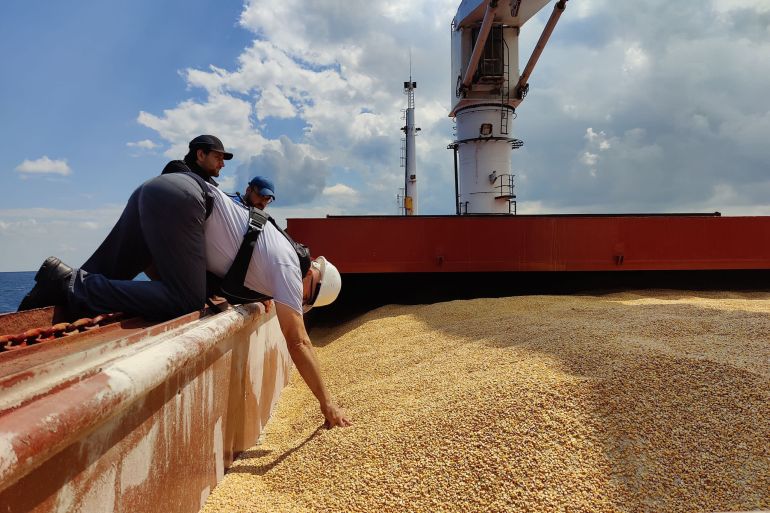Slovakia joins countries banning Ukrainian agriculture imports
Meanwhile, Hungary says it may extend a ban on grain if the EU fails to protect Hungarian farmers against price falls.

Slovakia has become the third European country to pause imports of some Ukrainian agricultural products, amid fears a glut is pushing prices down and imperilling farmers, as Hungary threatened to extend a grain ban.
Sandor Farkas, the Hungarian agriculture minister, said on Monday that if the European Union does not take sufficient action to protect Hungarian farmers, Budapest might halt imports beyond June.
Keep reading
list of 2 itemsUkraine grain export deal extended for four months
“Ukrainian grain imports got stuck in Hungary, driving down prices by about one-third, year on year,” he told parliament, saying he will use “all possible” means to protect Hungarian farmers from market disruptions.
Meanwhile, Slovakia said it will temporarily ban some farm imports – but not grain – from Ukraine as other countries in central and eastern Europe said they were considering action.
Amid a recent surge in cheap Ukrainian agricultural goods within the bloc, officials from Poland and Hungary earlier announced bans on the import of Ukrainian grains to protect their own farmers’ interests.
The leader of Poland’s governing party, Jarosław Kaczyński, said that the Polish countryside is facing a “moment of crisis,” and that while Poland supported Ukraine, it was forced to act to protect its farmers.
The European Commission has rejected the bans and said in a statement that the “EU’s trade policy is of exclusive competence and, therefore, unilateral actions are not acceptable”.
EU representatives are expected to discuss the issue later this week.
Ukrainian officials have said they regret Poland’s decision, saying while Polish farmers may be suffering, Ukrainians have it worse.
“The first step, in our opinion, should be the opening of transit, because it is quite important and it is the thing that should be done unconditionally and after that we will talk about other things,” Ukrainian Agriculture Minister Mykola Solsky said on Monday.
Talks between Ukrainian authorities and those in Poland, Romania and Slovakia are expected in the coming days.
What’s behind the tensions?
After Russia invaded Ukraine last year, Moscow blocked the Black Sea port’s sea routes, stalling Ukrainian ships from transporting grains and other agricultural products to the rest of the world.
The blockade ended in August with Black Sea grain deal, under which Russia allows the transport of Ukrainian grain.
The EU has lifted all duties on Ukrainian grains and introduced “solidarity lanes” to ensure there are no further obstacles in global exports.
But this move has angered farmers across Eastern and Central Europe.
Roads have been blocked in countries such as Bulgaria and Romania, with farmers protesting that cheaper Ukrainian grain has made them suffer huge financial losses.
Bulgaria’s Agriculture Minister Yavor Gechev said on Monday that while his country is in solidarity with Ukraine “a local glut is being created on the agricultural market, because instead of export corridors, our countries are becoming warehouses”.
His country is also working to ban imports from Ukraine, he said.